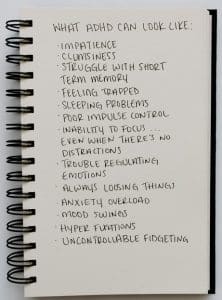Table of Contents
Do you know a few highly spiritual people within your friend/family circles?
Wonder why they seem to have a more peaceful demeanour as well as a healthier body than the rest of the crowd?
A myth or are spirituality and health really related?
A study published under “Frontiers in Psychology” states that “there is a significant relationship between spirituality, health-related behaviours and psychological well being.”
Similarly, various other studies report that people who have a sense of spirituality seem to have a more positive outlook, recover faster and cope better when their health is affected, or when they are going through a crisis.

Let’s delve deeper into the subject.
What is spirituality?
In essence, spirituality is an awakening to your own soul and its progress through life journeys while living in a world that’s essentially materialistic.
Spirituality can perhaps be considered as a support for mortal beings to find hope, inner peace, comfort and meaning in life.
People often find spirituality via religion (and perhaps use the terms interchangeably too!). However, spirituality and religion are two separate terms. It wouldn’t be wrong to say that religion often acts as an easy medium for humans to learn spirituality.
But that’s not the only channel!
Some people may imbibe strong spiritual lessons just by observing the laughter of water in a stream, or the vastness of the blue skies!
Music, books, nature, listening to talks and lectures of certain enlightened humans, and one’s principles and values are also ways in which people find it.
How does spirituality affect health?
No one really knows how spirituality positively affects health. While there have been various studies to understand the inter-relationship, there is no scientific explanation that provides a definite answer.
It seems like the spirit, mind and body are interconnected and as such, it makes sense that the health of each affects the others.
We’ve tried to gather information from multiple research projects and studies to put forth the following sections. Here are some areas in which spirituality affects health and well being.
Restores a sense of purpose
Spiritual awakening helps a person to attach a purpose to his life and help others who are struggling to find meaning.
Studies show that people who were suffering from serious illnesses benefited from three 45 minute sessions with a Chaplain, saying that the conversations were meaningful.
This can be due to the fact that part of a Chaplain’s job is to identify core spiritual needs, including the need for meaning, direction and self-worth, all of which emerge during a health crisis or times of stress.
Reduces isolation
Organized religion and spirituality meetings encourage connection and social engagement. They, therefore, reduce isolation which can lead to depression.
Whether it’s a church group, online spirituality group, yoga class, meditation session or even volunteering, involvement with a spiritual community provides support that may help reduce isolation and depression.
Provides hope
Hopelessness has been linked to depression.
Being connected to your spiritual self creates an understanding of the larger picture and helps people to look at the positive side of things.
Spirituality may, therefore, provide hope that can help relieve depression.
Having something to look forward to helps get people through the storm they are currently in. It helps anchor individuals to something else, providing them with the hope that things will turn around.
Boosts immune system
Praying, or meditation have been known to improve immune system functioning.
However, it may not be about what people believe in but how the body goes on ‘rest and repair’ mode when one is praying or meditating.
This allows the immune system to recharge and give the body time to heal.
A study on mindfulness-based stress reduction training showed that an 8-week meditation program reduced loneliness as well as pro-inflammatory gene expression.
Improves cognitive ability
Being able to connect to one’s inner spirit brings forth a sense of calm.
Similarly, for deeply religious people, relying on God or a higher power gives one a sense of protection that can have a positive effect on health and well being.
People who are relaxed are less distracted by worries or negative thoughts.
Blood pressure levels are reduced while blood flow to the brain improves, which in turn helps with clearer thinking and better memory.
Helps caregivers manage stress
Spirituality can also be helpful for caregivers. Physical and emotional stress, financial stress and health risks are all part of the demands caregivers face daily.
Being connected to a spiritual community means having people to talk to or rely on. This support can help to resolve some of the many challenges that come with caregiving.
What is the role of religion and spirituality in health?
Physical health is often a mirror image of the mental well being of an individual.
A mentally/emotionally strong individual will most likely see positive results on his/her physical health too.
Various case studies have been reported in medical history where patients suffering from serious diseases reported substantial improvements after getting involved in regular religious or spiritual learnings.
Research shows that religion and spirituality do help support good health.
Prayer, meditation, religious observances and even self-rated spirituality/religiousness all provide something that seems to anchor people.

Additionally, religious institutions encourage healthy behaviors, and provide connection and social support that helps in times of need.
Spiritual support, for example, from church members or your religious leader during a physical or mental health crisis can help individuals to cope better. Volunteering with your religious group can also provide a sense of meaning.
While these subjects can not be scientifically proven and are best left to individual beliefs, religion and spiritual practices have been seen to provide a space where one’s anxieties can be felt, faced and understood.
Spirituality and health research
Research on spirituality and health usually covers the area of coping, mortality and recovery.
Mortality
Observational studies show that individuals who take part in spiritual practices regularly live longer than those who do not.
Another study on churchgoers revealed that those who attended church were about 50% less likely to have elevated IL-6 levels.
Increased IL-6 levels are related to the increased occurrence of diseases. This may be due to religious commitment to providing better social support and better coping mechanisms.
Coping
The first lesson that spirituality teaches is an understanding of the continuity of life beyond death. It helps them to see a bird’s eye view of their life problems and brings an understanding that things do change for the better.
To confirm, various studies show that spiritual people are more likely to have a positive outlook as well as better quality of life.

Patients with cancer who took comfort in their religious and spiritual beliefs were found to be happier, felt less pain and generally more satisfied with their life.
In another study, 145 parents whose children had died of cancer discovered that parents who received comfort from religious beliefs adjusted better emotionally and physiologically.
In terms of spirituality and pain, one study on oncology patients concluded that spiritual well-being is associated with the ability to enjoy life in the midst of sickness and pain.
Recovery
Spiritual well being and commitment plays a role in enhancing the recovery process.
Modern medical science is broadening its outlook and conducting various studies and research to understand the relationship between spirituality, healthcare and recovery.
A study conducted among heart transplant patients revealed that those whose religious beliefs were important to them and who took part in religious activities had better follow up treatment compliance, better physical functioning at the 12-month mark, less anxiety and health worries and higher self-esteem.
A better recovery rate for people who practice spirituality could be attributed to less stress (reduced stress hormones), increased dopamine levels, and a more positive outlook on life.
Spirituality and mental health
Spirituality has also been linked to better mental health, especially in the following areas:
Depression
Many people struggle with depression at some point in their lives.
One study shows that religious salience is related to a lower risk of depression as well as recovery from depression.
Another study that examined intrinsic religiosity and remission among 94 medically depressed men found that those who were more intrinsically religious had higher and better rates of recovery from depression.
Anxiety
Religious involvement and spirituality have also been related to lowering anxiety.
A study on religion and anxiety disorder among 2969 adults found that religious involvement was one of the variables that were associated with decreased anxiety among those who were 18 to 39 years old but not for those who were 60 to 79 years old.
Another study among 114 adults who were just diagnosed with cancer found that patients who had better spiritual well being had less anxiety.
This is regardless of variables such as age, sex, and marital status.
Substance abuse
People who are religious are less likely to use drugs or abuse alcohol.
A 20-year study of 1014 male medical students found that those who were religiously involved when they were students were less likely than their nonreligious colleagues to abuse alcohol.
There is also strong evidence that spiritual involvement reduces the risk of substance abuse, with people who had addictions less likely to report religious involvement or affiliation.
Suicide
Many studies show that there is an inverse relationship between suicide ideation and religious involvement.
In another study, it was discovered that the risk of completed suicide is higher among individuals who were nonreligiously involved compared to those who were.
Other studies have found that suicide rates were inversely related to belief in God, self-reported religiosity, religious service attendance, and religious upbringing.
How to improve spiritual health?
Improving spiritual health is dependent on individual factors and preferences.
What works for you might not work for other people and vice versa.
Here are some ways in which you can try to improve spiritual health:
- Think about things that give you strength, comfort and inner peace.
- Observe and remember the things that provide you with love and connection.
- Set aside some time every day to intentionally practice things or ways that help you spiritually. For example, making time for prayer, meditation, quiet time thinking or reading, going for nature walks or attending a religious service.
- Some people find that volunteering and community service helps to improve their spiritual health.
- Connect with spiritual people or join groups that encourage spiritual talks, discussions.
- Use Google/Youtube as your teacher (if you don’t have one) and listen to talks and lectures by various spiritual leaders.
Conclusion
It’s important to take care of your spiritual health, in addition to your physical and emotional health.
After all, spiritual well being is the first step to feeling physically and mentally healthy.
Irrespective of the issues you are struggling with (and even if you have none), connecting with fellow spiritual/religious individuals will offer new insights.
Various religious/spiritual groups within your community may provide much-needed support as well.
Explore our private therapist directory and choose one who specialises in religion and spirituality. We would love to have a talk!
Sources:
https://www.aafp.org/afp/2001/0101/p89.html
https://www.mayoclinicproceedings.org/article/S0025-6196(11)62799-7/fulltext
https://www.ncbi.nlm.nih.gov/pmc/articles/PMC1305900/
No matter what you’re facing, perhaps our website can offer up some solace or comfort. Know that you’re not alone, and that there is help available. This can be hard to keep in mind if you haven’t quite found the right support system. While it’s definitely not easy to find the right fit—whether you’re looking for a support group or a mental health provider—with diligence, it’s totally possible.
If you are a therapist, life coach or counsellor looking to join our growing community, head over to book a tour once you have learnt about the plans we offer. At A Space Between, there is a ready league of providers you can network with. With professionals from various backgrounds and therapy practices, there are bound to be the ones you can connect with. Private practice does not have to be lonely.


